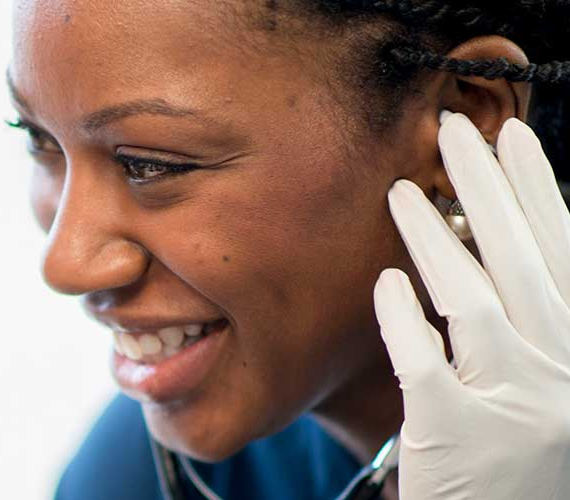When first considering a career in the field of nursing, it is not uncommon for aspiring nurses to compare the roles of licensed practical nurses (LPNs) and registered nurses (RNs) side by side with one another.
However, even though both titles have the word “nurse” in them, they are in fact fairly different roles within the healthcare industry. Each plays a critical, but unique, part in furthering the health of their patients.
Are you interested in becoming a nurse, and don’t know the exact career path you wish to follow? Are you considering whether becoming an LPN or RN is right for you? Below, we explore each of these positions and highlight the key differences you need to know to make an informed decision.
Key Takeaways
- LPNs and RNs play distinct roles in healthcare, with LPNs focusing on task-oriented duties under supervision, while RNs take on broader responsibilities, including critical thinking and strategic healthcare management.
- LPNs generally complete a shorter certificate program (12 to 18 months), whereas RNs follow a more comprehensive educational path, often requiring a bachelor’s degree to advance in their careers and meet licensure requirements.
- RNs tend to earn significantly more than LPNs, with an average annual salary difference of over $26,000. Job growth is favorable for both, with a six percent increase for RNs and three percent for LPNs from 2023 to 2033.
- RNs typically have greater opportunities for career advancement and specialization, due to their extensive training and the strategic nature of their roles.
- Aspiring nurses should consider factors like salary, educational investment, and desired responsibility when choosing between becoming an LPN or an RN, as these elements affect both career trajectory and job fulfillment.
What Does a Licensed Practical Nurse Do?
A licensed practical nurse, also known as a licensed vocational nurse (LVN) in some states, works under the supervision of doctors and registered nurses. The duties of an LPN include taking vitals, collecting samples, administering medications, and ensuring patient comfort. While a registered nurse or nurse practitioner (NP) plays an active role in conceptualizing patient treatment plans, LPNs tend to be much more task-driven in their work and are typically responsible for actually carrying out those treatments.
LPNs can oversee certified nursing assistants (CNAs), but the LPNs main focus of their days is providing care to their patients and less about management. LPNs tend to work in environments such as hospitals, nursing homes, long-care facilities, and other medical facilities.
What Do Registered Nurses Do?
For many aspiring nurses, becoming a registered nurse is a good entry point into the career. With competitive salary, job stability, and the personal impact they have on the lives of their patients, registered nurses can enjoy a fulfilling career.
Tasks performed by registered nurses range from conducting patient assessments and creating patient care plans to performing wound care, drawing blood or urine samples, and recording a patient’s medical history and symptoms, among others. As such, RNs play a role similar to LPNs in terms of the actual care that they provide, but with an added layer of critical thinking and healthcare strategy that LPNs typically are not involved in.
Registered nurses can work anywhere there is a need for nurses. This may involve healthcare settings such as hospitals, nursing homes, and physicians offices, but may also include schools, college campuses, prisons, corporate campuses, community health centers, and more.
Key Differences Between RNs and LPNs
In addition to the differences in role and responsibility outlined above, there are also differences in salary and educational requirements that you should be aware of.
Training and Education
One of the biggest differences between LPNs and RNs is in the educational training required to work in each role.
To become a registered nurse, you will need to earn a degree from an accredited nursing program. In some states, RNs simply need their associate's degree, however more and more states are pushing RNs to earn their bachelor's degree in nursing (BSN) in order to obtain their license. Even in states where a bachelor’s degree is not required to become an RN, many employers will only consider applicants who have earned that degree.
With this in mind, if you’re a first time college student, a traditional four-year nursing degree might be the best plan for you. If you’ve already earned your associate's degree, or went to college for four years but not for nursing, there are many different accelerated programs that can be completed within as little as 16 months or 24 months.
In order to become a LPN, you will need to complete a state-approved certificate program, which typically lasts between 12 to 18 months. An associate’s degree may also qualify.
Before beginning your career as either an RN or LPN, you must pass the National Council Licensure Examination (NCLEX) and apply for licensure in the state in which you wish to work. The exam and licensing requirements are different for RNs and LPNs.
Salary and Job Outlook
The average salary for a registered nurse is $86,070 according to the U.S. Bureau of Labor Statistics (BLS). That translates into roughly $41.38 an hour. Between 2023 and 2033, the demand for registered nurses is expected to grow at a rate of six percent, which is faster than average.
The average annual salary for licensed practical nurses, on the other hand, is approximately $59,730 a year, or $28.72 an hour. Between 2023 and 2033, the demand for licensed practical nurses is expected to grow at a rate of three percent.
While both positions are expected to see strong demand growth over the next decade, a clear difference between the two roles is salary. RNs earn, on average, more than $26,000 more each year than do LPNs. This increased salary is reflective of both the increased education that registered nurses must complete, as well as the type of advanced work that they must perform daily.
Is It Better To Become an LPN or RN?
When deciding whether to become a licensed practical nurse or a registered nurse, it depends largely on your career goals, educational commitment, and desired earning potential. LPNs typically complete a shorter training program, which allows them to enter the workforce quickly and start gaining experience. This makes it an appealing option for those looking to start their nursing career swiftly.
However, RNs require a more extensive education, including obtaining at least an associate's degree. They often have higher salaries, more responsibilities, and greater opportunities for advancement. RNs are also in high demand in a variety of healthcare settings.
Choosing the Right Nursing Career For You
In beginning your nursing career, there are many factors that individuals should consider. To understand which role is truly the right one for you, ask yourself:
- What salary do you need for your desired lifestyle?
- How soon do you need to (or want to) begin working in the field?
- Is a shortened education beneficial for your career outlook now?
- What responsibilities are you looking for in your career?
- Are you looking to climb the career ladder?
Your answers to these questions should inform your decisions. If you find that you want a higher salary, more autonomy at work, more opportunities for career advancement, and a wider range of responsibilities, then becoming an RN is likely the right path for you.


